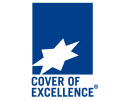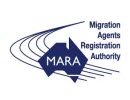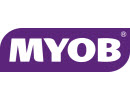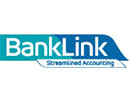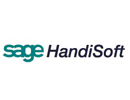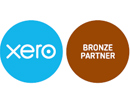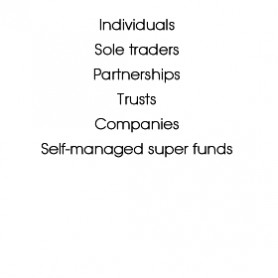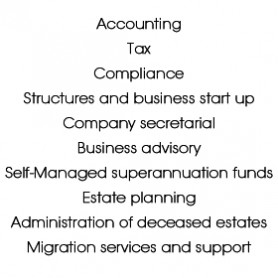Eligible small business entities can access a number of tax concessions, including
- Capital Gains Tax (CGT)
- Income tax
- Goods and Services Tax (GST)
- Pay As You Go (PAYG) instalments
- Fringe Benefits Tax (FBT).
To be eligible you must meet the following conditions:
- you are an individual, partnership, company or trust and
- you are running a business
- you have an aggregated turnover of less $10 million from 1 July 2016.
You’ll need to check if you qualify for the concessions each tax year. Additional conditions may apply to certain concessions.
The benefits of the concessions include:
- All business entities (incorporated or otherwise) that meet the new $10 million aggregated turnover test will be able to access the simplified depreciation rules, including the existing instant asset write-off scheme. This will allow them to claim an immediate deduction for depreciable asset purchases costing less than $20,000 until 30 June 2017. Increasing access to this scheme will provide significant incentives for many qualifying small businesses to increase their current capital expenditure spend. However, the after-tax consequences of the proposed immediate deduction for depreciating assets should be considered. If this results in a tax loss, there is no immediate cash-flow advantage.
- The option to account for Goods and Services Tax (GST) on a cash basis and pay GST instalments as calculated by the ATO
- Simplified trading stock rules, giving them the option to avoid end of year stocktake if the value of stock has changed by less than $5,000
- A simplified method of paying PAYG instalments calculated by the Australian Taxation Office (ATO) which removes the risk of under or over-estimating PAYG instalments and the resulting penalties that may be applied Other tax concessions currently available to small businesses, such as fringe benefits tax (FBT) exemptions (from 1 April 2017 to align with the FBT year)
- A trial of simpler business activity statements (BAS) reducing GST compliance costs, with a full roll-out from 1 July 2017.
- simpler depreciation rules
- immediate deductions for certain prepaid business expenses-see below.
- Employee share scheme interests-see below
- Reduced tax rate for unincorporated businesses
The Government will increase the tax discount for unincorporated small businesses incrementally over 10 years from five per cent to 16 per cent. The tax discount will increase to
eight per cent on 1 July 2016, remain constant at eight per cent for eight years, then increase to 10 per cent in 2024-25, 13 per cent in 2025-26 and reach a new permanent discount of 16 per cent in 2026-27.
The tax discount applies to the income tax payable on the business income received from an unincorporated small business entity. Access to the discount will be extended to individual taxpayers with business income from an unincorporated business that has an aggregated annual turnover of less than $5 million. The current cap of $1,000 per individual for each income year will be retained
- Corporate tax rate reduction
- In a highly anticipated move, the Federal Government announced that it will reduce the company tax rate from 30 per cent to 27.5 per cent for all incorporated businesses with an annual aggregated turnover of less than $10 million with effect from 1 July 2016.
- The corporate tax rate is currently 28.5 per cent for small business entities (broadly, those with annual aggregated turnover of less than $2 million) and 30 per cent for all other companies.
- The threshold will then be progressively increased to ultimately have all companies at 27.5 per cent in the 2023-24 income year. The annual aggregated turnover thresholds for companies facing a tax rate of 27.5 per cent is set out in the table below:
| Income year | Annual aggregated turnover threshold |
| 2016-17 | $10 million |
| 2017-18 | $25 million |
| 2018-19 | $50 million |
| 2019-20 | $100 million |
| 2020-21 | $250 million |
| 2021-22 | $500 million |
| 2022-23 | $1 billion |
| 2023-24 | No threshold |
- In the 2024-25 income year the company tax rate will be reduced to 27 per cent and then be reduced progressively by 1 percentage point per year until it reaches 25 per cent in the 2026-27 income year.
- Franking credits will be able to be distributed in line with the rate of tax paid by the company making the distribution. It is unclear how the phasing of the corporate tax reduction will apply to investment companies, i.e. non-business entities.
- The lowering of the small business corporate tax rate to 27.5 per cent, coupled with an increase of the qualifying threshold to $10 million from 1 July 2016 is expected to bring early significant cash flow benefits to those small businesses operated through corporate entities.
- However, the increased differential between the corporate tax rate and the top marginal tax rate will also have the effect of increasing the amount of ‘top up tax’ payable when private company profits are ultimately distributed to shareholders. Small businesses will therefore need to consider the tax profile of their shareholders and their capacity to frank dividends when considering their annual dividend strategies.
Some of the small business concessions were previously available under the Simplified Tax System (STS). If you were in the STS you can continue to use the concessions if you meet the eligibility requirements.
The current $2 million turnover threshold will be retained to access the small business capital gains tax (CGT) concessions, and access to the unincorporated small business tax discount will be limited to entities with turnover less than $5 million.
The introduction of an increased small business threshold is a welcome move as not all small businesses were able to take advantage of the existing concessions due to the low threshold. However, it is disappointing that the Government has not taken the opportunity to apply this $10 million eligibility threshold to all concessions targeted at small businesses.
Small business thresholds will continue to be inconsistent despite this change. This often leads to confusion and increased compliance costs due to the complexity of the rules applicable to the small business sector. For example, the small business CGT concessions require taxpayers to satisfy either the $6 million net asset value test or the $2 million aggregated turnover test. In contrast a $20 million aggregated turnover test applies for the R&D refundable tax offset rules and debt/equity rules.
Private business could benefit from having a consistent set of thresholds applying, and would have greater access to these small business concessions if the thresholds were increased and indexed annually.
Immediate tax deductibility for small business start-up costs
From 1 July 2015 an individual or entity starting up a new business will be able to claim the capital start-up costs of doing so as a tax deduction in the year of start-up. Previously, those costs could only be deducted over a 5 year period.
The immediately-deductible costs will include such things as:
- structural advice from lawyers and accounts;
- Valuation advice fees
- preparing the legal documents and setting up business systems;
- legal and accounting due diligence;
- business plans;
- capital costs of raising debt or equity capital;
- government fees (such as ASIC fees on incorporating a company and stamp duty on trust deeds)
There is no statutory cap on those costs.
The concession is available to any person or entity proposing to commence a new business and who is either:
- presently carrying on a business or businesses with an aggregated turnover over of less than $10million or
- is not presently carrying on any business.
If that person or entity is not presently carrying on any business, they must not be in a controlling relationship with any person or entity which is carrying on a business or businesses having an aggregated turnover of $10 million or more.
The concession must be for establishment costs for a proposed business. It will not cover:
- professional and other capital costs incurred in respect of an existing business;
- the purchase of assets for a new business;
- indirect establishment costs (e.g. the costs of travel to assess the viability or suitability of a proposed business).
Employee Share Schemes
For ESS interests acquired in a startup company after 30 June 2015, employees may be eligible to reduce the taxable income discount declared to nil.
To be eligible for the startup concession, the interests must be in a qualifying startup company that is an Australian resident taxpayer.
Startup businesses are typically classified as a business
- not listed on any stock exchange
- has been incorporated for less than 10 years
- has a combined turnover of less than $50million a year.
If an employee is eligible for the startup concession, this does not prevent them from acquiring ESS interests under another concessional or non-concessional scheme if it is offered by their employer.
A concession is available to an employee with ESS interests in a start-up company provided that the scheme meets certain conditions:
- the employer (which may or may not be the company issuing the ESS interest) is an Australian resident company
- the employee meets the 10% ownership and voting rights test
- the discount on an ESS interest that is a share is no more than 15% of its market value at the time it is acquired
- the amount payable to exercise an ESS interest that is a right is greater than or equal to the market value of an ordinary share in the company when the right is acquired.
ESS can be extra beneficial for startups, allowing them to include shares/options as part of staff remuneration. This could mean avoiding paying high salaries while the business is being established, at a time when startups are cash-poor
